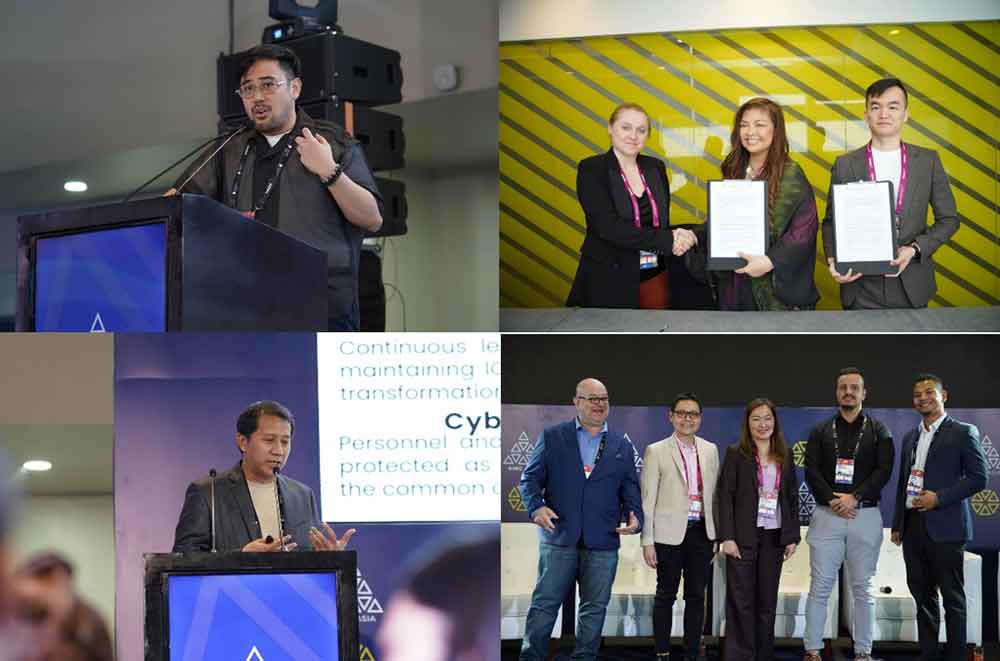IN AN era of rapid techno-logical advancement, artificialintelligence (AI) has emerged as a transformative force across industries, including the bur-geoning business landscape of the Philippines. This according to Aileen Judan-Jiao, president & technology leader at IBM Philip-pines, speaking at a media round table on how generative AI can impact business positively.
IBM’s watsonx, an AI and data platform, is at the forefront of this revolution, offering a robust suite of tools that promise to reshape the way Philippine businesses operate, analyze data, and interact with customers.
Watsonx’s open architecture allows businesses to leverage a variety of AI models, tailored to specific use cases and compliance requirements.
This adaptability is crucial in the diverse Philippine market, where companies across different sectors, from finance and healthcare to retail and manufacturing, can find applications for AI that align with their unique needs and objectives.
One of the most significant advantages of watsonx is its focus on trusted AI. As AI systems become more integrated into decision-making processes, ensuring their transparency, fairness, and explainability is paramount. Watsonx addresses these concerns by incorporating governance tools and mechanisms to monitor and mitigate biases, enhancing the reliability and trustworthiness of AI-powered solutions.
In the Philippine context, where data privacy regulations are stringent, this focus on trusted AI is especially relevant. Businesses can confidently adopt AI solutions knowing that watsonx prioritizes data protection and ethical considerations, minimizing the risks associated with AI implementation.
Furthermore, watsonx’s scalability allows businesses to start small and gradually expand their AI capabilities as their needs evolve. This is particularly beneficial for small and medium-sized enterprises (SMEs) in the Philippines, which may have limited resources but still want to harness the power of AI. With watsonx, they can access sophisticated AI tools without the need for extensive infrastructure investments.
In practical terms, watsonx is already making an impact on various aspects of Philippine businesses. In customer service, AI-powered chatbots and virtual agents are enhancing customer interactions, providing instant responses to queries, and resolving issues efficiently.
This not only improves customer satisfaction but also frees up human agents to focus on more complex tasks, increasing overall productivity.
In the financial sector, AI is being utilized for fraud detection, risk assessment, and personalized financial advice. By analyzing vast amounts of data, AI algorithms can identify patterns and anomalies that might go unnoticed by humans, helping financial institutions make more informed decisions and protect their customers.
The impact of AI extends beyond individual businesses. It is also reshaping entire industries and creating new opportunities for economic growth.
In the Philippines, AI is expected to play a crucial role in the development of smart cities, precision agriculture, and sustainable manufacturing.
By leveraging AI, businesses can optimize resource utilization, reduce waste, and create more resilient and environmentally friendly operations.
However, the adoption of AI also presents challenges. One of the main concerns is the potential displacement of jobs due to automation. While AI undoubtedly automates certain tasks, it also creates new job roles that require different skill sets. To address this, upskilling and reskilling programs are essential to equip the workforce with the necessary knowledge and expertise to thrive in an AI-driven economy.
Artificial intelligence, exemplified by platforms like IBM watsonx, is transforming the business landscape in the Philippines. Its ability to analyze vast amounts of data, automate tasks, and provide insights is enabling businesses to become more efficient, innovative, and customer-centric.
However, responsible and ethical AI development, along with workforce upskilling, are crucial to ensure that AI benefits everyone and contributes to sustainable economic growth in the Philippines.
As AI continues to evolve, it will undoubtedly play an even more significant role in shaping the future of businesses and society in the country.





